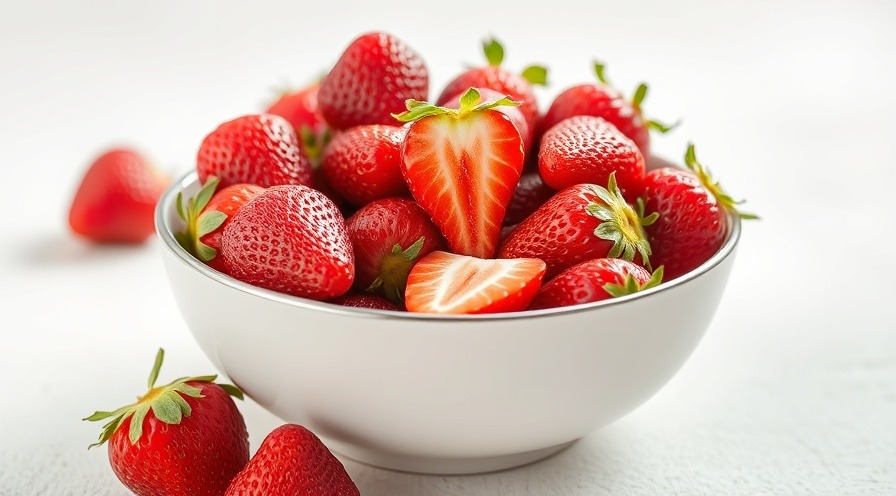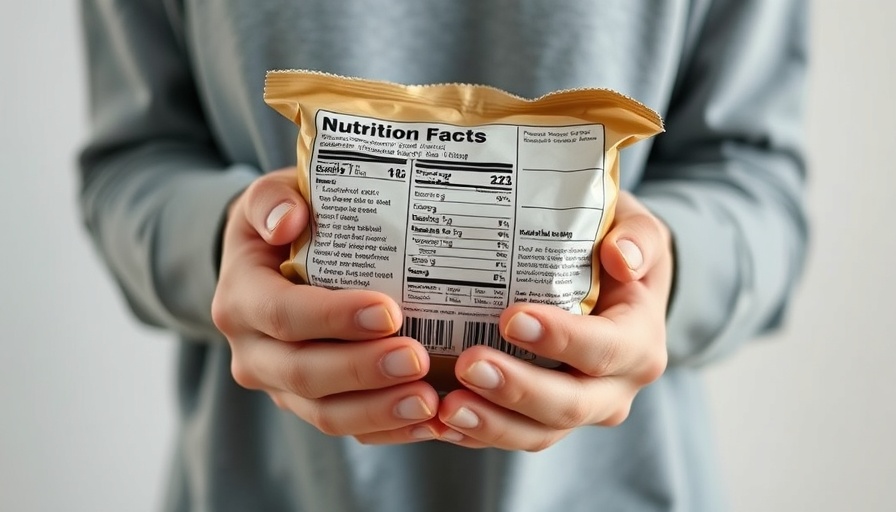
Understanding the Impact of Food on Brain Chemistry
Have you ever paused to consider how the food you consume influences your mental state? The connection between food and brain chemistry is profound, and what you eat can directly affect your mood, focus, and overall mental well-being. By understanding this relationship, you can make informed choices to improve not just your physical health but your mental health as well.
In 'How Food Changes Your Brain Chemistry (And When Supplements Can Help)', the discussion dives into the crucial relationship between diet and mental well-being, exploring key insights that sparked deeper analysis on our end.
Food as Fuel: The Pathway to Brain Function
Your brain operates like a complex chemical factory, relying on neurotransmitters—chemical messengers that regulate mood, focus, and cognition. Neurotransmitters such as serotonin, dopamine, and GABA are crucial in how you feel and function mentally. However, these chemicals cannot be synthesized out of thin air; they require specific nutrients found in the foods you consume.
For instance, serotonin, often dubbed the 'feel-good' neurotransmitter, is built from tryptophan—a precursor amino acid. Foods rich in this nutrient, such as turkey, nuts, and salmon, contribute significantly to stable serotonin levels, which can enhance your mood and overall sense of calm. Similarly, dopamine, linked to motivation and pleasure, is formed from tyrosine. Including lean proteins and bananas in your diet helps support healthy dopamine levels, which can improve your focus and energy.
The Role of Micronutrients: Essential Vitamins and Minerals
B vitamins play a key role in neurotransmitter production, but their sources are crucial. Whole foods like eggs, leafy greens, and legumes provide a complete nutrient profile essential for forming brain chemicals. In contrast, processed foods tend to lack these vital nutrients, negatively impacting your mental health.
Our gut health also deserves attention in this discussion. Interestingly, a whopping 95% of serotonin is produced in the gut, emphasizing the importance of a balanced diet rich in fibers from fruits and vegetables. This not only aids in nutrient absorption but also supports the growth of a healthy gut microbiome, which directly affects brain function.
When Foods Aren't Enough: The Supplement Situation
While whole foods are superior to supplements for sourcing nutrients, there are instances where supplementation becomes necessary—particularly for individuals with dietary restrictions or specific health needs. For example, if you're a vegan, taking a vitamin B12 supplement is generally recommended since plant foods don't provide this nutrient naturally.
Moreover, certain life stages such as pregnancy or aging can increase nutrient requirements. In these cases, targeted supplements can help maintain optimal cognitive function, especially when dietary intake is insufficient.
Considerations for Brain Health: What to Avoid
It's equally vital to be mindful of what could be sabotaging your brain health. Excessive consumption of caffeine, sugar, and processed foods can disrupt brain chemistry, leading to emotional instability and fatigue. Balancing these factors while emphasizing nutrient-dense foods can pave the way for clearer thinking and better mood regulation.
Recognizing how food influences brain chemistry opens the door to healthier living and decision-making. If you're feeling persistent brain fog, mood swings, or lapses in memory, consider evaluating your dietary choices. Simple adjustments might make a significant difference in your mental clarity and emotional stability.
Talking to a healthcare provider about testing for deficiencies can also provide insight into how to improve your brain health holistically. Remember, your mind matters, and so does what you feed it!
If you’re eager to explore more on improving your mental well-being through nutrition, stay tuned for our upcoming articles where we’ll delve into trendy supplements and wellness practices.
Disclaimer: The information provided on this website is for general informational purposes only and should not be considered medical advice, diagnosis, or treatment. Always consult a qualified healthcare professional before making any decisions or taking actions related to your health, including but not limited to medical conditions, treatments, diets, supplements, or exercise programs. The content on this site is not intended to replace professional medical guidance. The website and its authors are not responsible for any actions taken based on the information provided. Ask your doctor or licensed medical professional.
 Add Row
Add Row  Add
Add 




 Add Row
Add Row  Add
Add 

Write A Comment